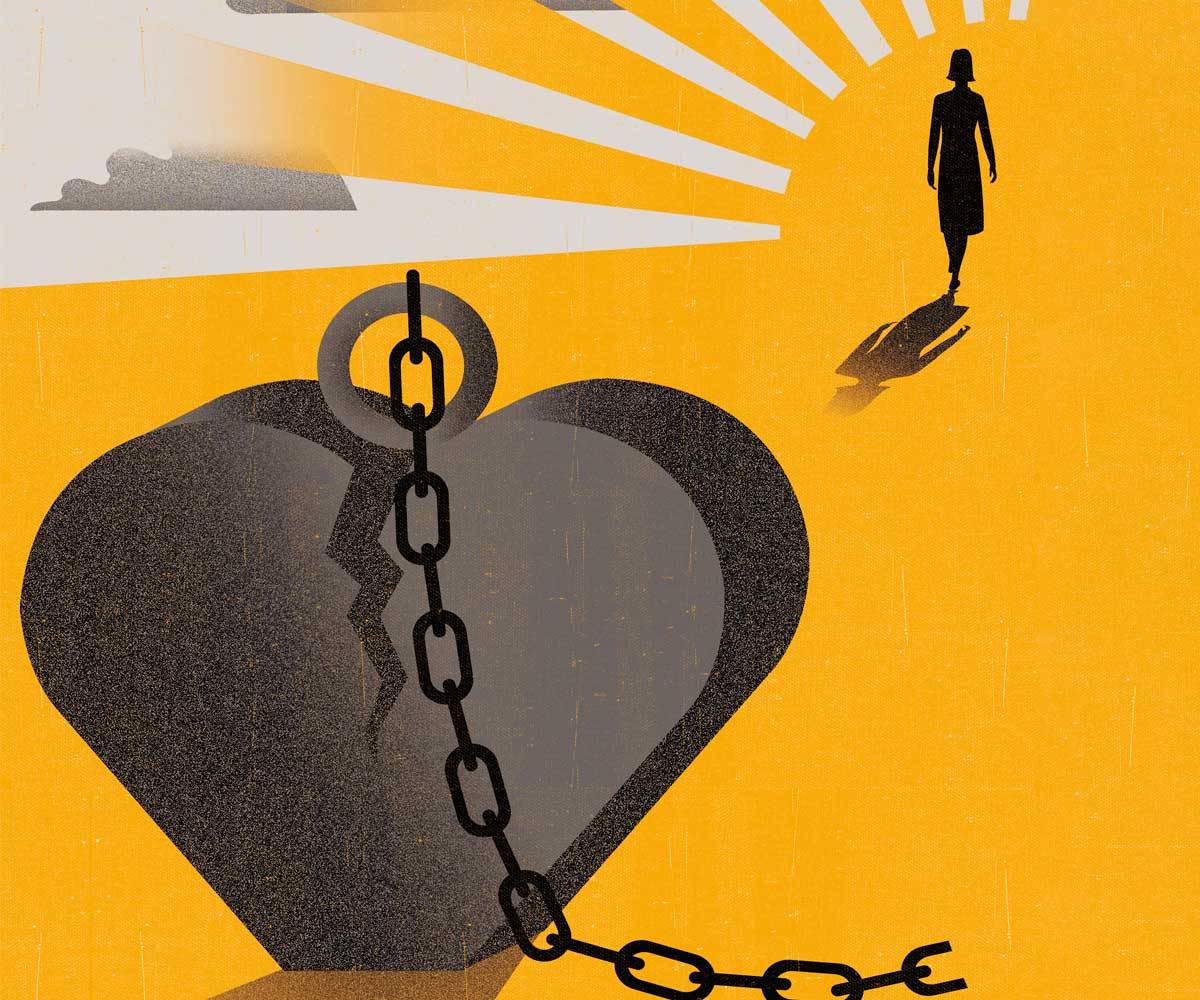Feeling nervous, anxious or worried is your body’s natural response to potential danger, whether emotional, physical or circumstantial.
Anxiety can, therefore, be a very useful tool in telling us when we need to take action to protect ourselves or to make changes in our lives to improve our situation.
However, being unable to stop worrying, feeling constantly on edge and experiencing a debilitating range of physiological symptoms may be a sign that you need to seek help to manage your anxiety and mental health.
“Simply put, it’s the length of time and impact anxiety ends up having on your life,” Noel McDermott, a psychotherapist and mental health consultant with over 25 years of experience, tells The Debrief.
“Ask yourself if it’s bothering you. If it is anything that has gone on beyond two weeks, it has become a problem. You may have exams going on, in which case, it is perfectly normal and healthy to be anxious. But if you’re experiencing sleeplessness, losing your temper with people and unable to relax, you may wish to seek some help.”

Psychological symptoms of General Anxiety Disorder
• Restlessness
• A sense of dread
• Feeling constantly ‘on edge’
• Difficulty concentrating
• Irritability
Experiencing these symptoms might cause you to withdraw from social situations. You may be less likely to go out with your friends and reduce contact with loved ones to avoid intensifying these feelings.
Going to work can become more difficult too, and you may need to take time off sick. These things can lead to negative emotions such as guilt, shame and feelings of isolation, and could add an even heavier load to your anxious burden.
Then there are all the possible physical symptoms of anxiety.
“People experience anxiety when they realise they are going through the ordinary physiological responses to fight or flight,” Peter Kinderman, professor of clinical psychology at the University of Liverpool and lead FutureLearn educator, says.
“Physiologically, we get ready for combat or to run away… so we experience autonomic arousal [a heightening of the senses] and a surge in adrenaline.”
The physiological symptoms of GAD include the following:
• Dizziness
• Tiredness
• A noticeably strong, fast or irregular heartbeat
• Muscle aches and tension
• Trembling or shaking
• Dry mouth
• Excessive sweating
• Shortness of breath
• Stomach ache
• Feeling sick
• Headache
• Pins and needles
• Difficulty falling or staying asleep (insomnia)
Not all of these symptoms need to be present in every individual for a diagnosis of GAD to be given.
“[Symptoms] are different for all sorts of reasons,’ Kinderman continues. ‘Different people have different physiological make-ups and different life experiences. They develop problems for different reasons.”
To give you an idea of how anxiety can feel to different people, we asked The Debrief readers to describe what GAD is like.
“Constantly being tired from fighting with myself,’ one anonymous source describes. ‘Worrying about everything but not being able to control myself, even when I know I’m being irrational.”
“With my anxiety issues it makes me feel like I am in major panic, almost like you’re in a room without a door and windows trying to find a way out,” another tells us. “I always end up crying and shaking.”
“I couldn’t get to sleep, I was questioning friendships, my relationship felt insecure and I was imagining and creating problems that weren’t there,” says a third reader.
“I normally have a really healthy internal monologue and I noticed I was beating myself up about things I wouldn’t normally bat an eyelid at. There were a couple of occasions where I felt physically shaken, had hand tremors, mood swings, palpitations and a tight chest. It’s really scary.”

So, who should diagnose you with GAD?
“It’s always best to get a professional psychotherapist or doctor to diagnose you,” McDermott says.
“However, before you do that, you can get an idea by taking the GAD Seven test on the internet, and you can score yourself.
“There are seven main questions that we use to measure the severity of symptoms of anxiety and the impact it has on our lives. I might score highly in one day, but if I’m scoring highly in five to seven days, anxiety is more likely to be a problem for me. Your score also indicates what sort of intervention would be needed.”
Take the GAD Seven test for yourself and see how you score. But do so with a word of slight caution.
“The issue with doing it yourself is that anxiety often makes it feel as though problems are bigger than they are. Sometimes it’s worth getting someone outside of your situation to assess it.”
When it comes to treatment for GAD, there are thankfully many options available.
In mild forms, reaping the benefits of fresh air and movement might be all that’s needed.
“Exercise is very good, keeping fit, staying active,” Kinderman says. “A lot of times, anxiety and depression can be treated just by exercise. Taking the dog for a walk could be one of the best things that you can do.”
McDermott’s advice?
“Opt for evidence-based treatment only. Follow the NICE guidelines to find out what this includes. For anxiety and depression, the first port of call should be Cognitive Behavioural Therapy (CBT), mindfulness CBT and behavioural therapies, which are effectively about lifestyle changes.’
Cognitive Behavioural Therapy is a talking therapy whereby a therapist will help you get to the route of how you feel and challenge you to think and behave differently.
Medication like Selective Seratonin Reuptake Inhibitors (SSRIs) – combined with a talking therapy, like CBT – may be a good option for treatment if you are suffering very severely and over a prolonged period of time. These non-addictive pharmaceuticals can lift low moods enough for such therapy to be more effective, although may also increase feelings of anxiety for a short time when the course Is first started.
Angelina Nizzardi runs a therapeutic practice specialising in natural treatments for General Anxiety Disorder.
She recommends trying out some of the self-help apps and mindfulness programs available online.
“Mindfulness-based stress reduction is an effective treatment for anxiety,” she tells The Debrief.
“Relaxation therapies are good, helping the patient to progressively relax their muscles. Breathing practices are very effective and conscious or deep breathing can help to regulate the heart rate. Similarly, meditation practice and yoga helps to bring our consciousness into the present moment, lessen intrusive thoughts and settle the mind.”
Apps such as Buddify and Headspace are a great introduction to mindfulness-based meditation and coping techniques.
Online courses, such as bemindfulonline.com, are also great alternatives, however do come at a cost.
For free help, FutureLearn is a great resource. Try the Mindfulness for Wellbeing and Peak Performance course here.
Then there’s what we eat

“Diet and exercise are crucial in managing an anxiety disorder,” Nizzardi adds. “When I see a patient we always look at their diet. Stressors are alcohol, coffee, processed sugar, saturated fats, and foods with lots of additives such as takeaways and convenience meals. They can increase heart rate, bringing on feelings of panic or place undue stress on the nervous system.”
Whatever you decide, however, remember that recognizing you might need some help is half of the battle.
“People know themselves, and if they think they are experiencing more anxiety than seems normal, they should try to seek the help they think they need,” Kinderman concludes.
“This is what it means to be human. It’s normal to identify threats and do something about it. If what happens is recognising you need to take steps to do things, you can do something to address the problem. Anxiety can be helpful in that respect.”
Via our sister site Grazia.
Where to get help
Lifeline: 0800 543 354 or text HELP to 4357
Suicide Crisis Helpline: 0508 828 865 / 0508 TAUTOKO (24/7). This is a service for people who may be thinking about suicide, or those who are concerned about family or friends.
Depression Helpline: 0800 111 757 (24/7)
Samaritans: 0800 726 666 (24/7)
Youthline: 0800 376 633 (24/7) or free text 234 (8am-12am), or email [email protected]
What’s Up: online chat (7pm-10pm) or 0800 WHATSUP / 0800 9428 787 children’s helpline (1pm-10pm weekdays, 3pm-10pm weekends)
Kidsline (ages 5-18): 0800 543 754 (24/7)
Rural Support Trust Helpline: 0800 787 254
Healthline: 0800 611 116
Rainbow Youth: (09) 376 4155
.jpg)
